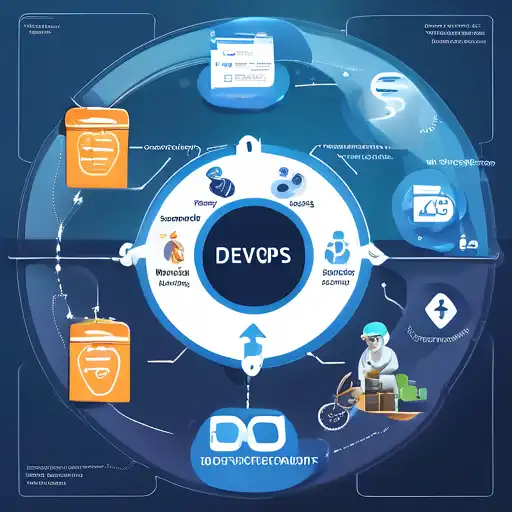Introduction to DevOps in Software Development
DevOps has revolutionized the way software is developed, deployed, and maintained. By bridging the gap between development and operations teams, DevOps practices ensure a smoother, faster, and more efficient software development lifecycle (SDLC). This article explores the pivotal role of DevOps in enhancing the SDLC, focusing on its benefits, methodologies, and best practices.
The Core Benefits of DevOps
DevOps brings numerous advantages to the table, including but not limited to:
- Improved Collaboration: DevOps fosters a culture of collaboration between developers and operations teams, breaking down silos and enhancing communication.
- Increased Deployment Frequency: With continuous integration and continuous deployment (CI/CD), teams can release updates more frequently and with greater reliability.
- Enhanced Efficiency: Automation of repetitive tasks reduces manual errors and frees up time for innovation.
- Greater Scalability: DevOps practices support scalable infrastructure management, allowing businesses to grow without compromising performance.
Key DevOps Methodologies
To fully leverage DevOps in the SDLC, understanding its core methodologies is essential:
- Continuous Integration and Continuous Deployment (CI/CD): These practices enable developers to integrate code into a shared repository frequently and deploy it automatically, ensuring quick feedback and iteration.
- Infrastructure as Code (IaC): IaC allows teams to manage and provision infrastructure through code, improving consistency and reducing manual setup errors.
- Monitoring and Logging: Continuous monitoring and logging help in identifying and resolving issues in real-time, ensuring high availability and performance.
Best Practices for Implementing DevOps
Adopting DevOps requires a strategic approach. Here are some best practices to consider:
- Start Small: Begin with a pilot project to understand the impact of DevOps on your processes before scaling up.
- Embrace Automation: Automate as much as possible, from testing to deployment, to minimize errors and save time.
- Focus on Culture: DevOps is as much about culture as it is about tools. Encourage a culture of collaboration, learning, and continuous improvement.
- Invest in Training: Ensure your team is well-versed in DevOps principles and tools through regular training and workshops.
Conclusion
DevOps is not just a set of practices but a cultural shift that significantly improves the software development lifecycle. By fostering collaboration, enhancing efficiency, and enabling continuous delivery, DevOps helps organizations deliver high-quality software at speed. Whether you're just starting out or looking to optimize your current processes, embracing DevOps can lead to remarkable improvements in your SDLC.
For more insights into optimizing your development processes, explore our articles on Continuous Integration and Agile Methodology.
